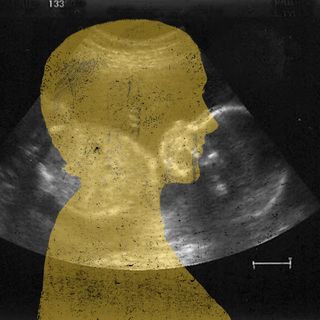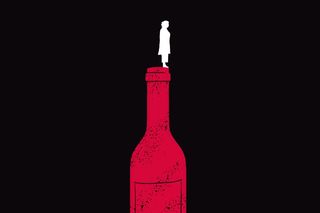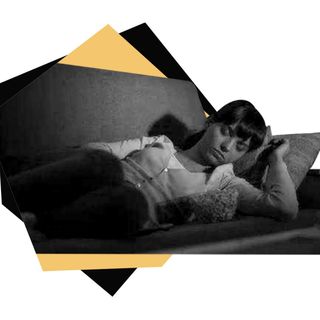
What It’s Like to Live With: Alcoholism Under Lockdown
“Video calls with the support group are not the same. You can’t hug people, wipe tears or hold hands.”

What It’s Like to Live With explores the stories of the loved ones living with and/or caring for people who see and experience every day a little differently.
I don’t know how I became an alcoholic. But what I know is that I lost everything because of it — my job, my husband and one daughter. And now, I may lose the other one too.
I remember enjoying a couple of drinks over the weekend or parties as a young girl because social drinking was completely acceptable to my parents. I started enjoying drinking a lot during college and found myself at parties almost every day because I had completely lost interest in studies or extracurricular activities. But everyone at home looked at it as part of growing up and not as the beginning of a problem.
Related on The Swaddle:
What It’s Like to Live With: Post‑Traumatic Stress Disorder
Slowly I moved out of my house to stay close to my workplace and my boyfriend moved in. He was quite influential in improving my drinking habits. I had started to do well in my job as a banker but couldn’t get rid of my craving to drink. Soon, I took to drinking even during the day, sometimes, in the washroom of my office. I never thought of seeking help. I got married, went on to have two daughters, but because of my drinking, I couldn’t take care of them or my job. I could quit my job, but how could I quit parenting? My husband was very supportive, but I think after a point, it got too much for him — he was taking care of four people, including himself. He filed for a divorce and got custody of both my daughters. He sent them to boarding school. I was allowed to visit them once a month and this seemed to be a turning point.
Once, on one of these monthly visits, I showed up to my younger daughter’s school disheveled. She refused to look me in the eye or acknowledge my presence. I wasn’t drunk then, and I remember that feeling so well, it pricked my heart. When your child lets you down, you can forgive and let go of it. But what do you do when you let your child down?
I decided to seek help and approached Alcoholics Anonymous, and until two years ago, I was eight years sober. Then my elder daughter passed away. She was under severe depression that was apparently triggered by my drinking and our divorce. It led her to take her own life. I couldn’t deal with the fact that I couldn’t spend time with her due to alcoholism, and when I was finally getting better, she left us. I got back into drinking, but not as much as I used to.
When the lockdown was announced, my younger daughter came to live with me after my caretaker left for her hometown. While she was thinking of the essential things we needed to stock up on, I panicked about alcohol. I called the shop and ordered alcohol worth a few thousands. It was enough money to keep a house running for two months. I lost out on a major chunk of my savings. I think the anxiety and stress of being under lockdown, and being unable to meet people in my support group, has increased my tendency to pick up a glass during the day.
My daughter, tired of not getting any help from me, has told me many times she’s going to leave if I don’t stop drinking. She’s told me she’s going to stop supporting me financially and she’s right on her part, she should not have to take care of me if I am the one who is not ready to improve.
She has tried to set up video calls to connect me with the support group, but it’s not the same. They’re not there in person to be able to hug them, wipe tears, hold hands, say prayers together, or express gratitude. I don’t even like technology too much. They created a WhatsApp group for exercises but I left it immediately. The barrage of messages gives me anxiety, it’s like someone is constantly standing on my head to get work done. I only use my phone to talk to my friends.
I have also been unable to go to my dance class or a walk, so how do I channel my energy or use my time? My daughter and I keep fighting all day, and I know how upset it’s making her, but being this way is not out of choice, it’s a problem and right now, I don’t see a way out. We’ll see what happens once the lockdown is eased.
This interview has been condensed and edited for clarity. As told to Anubhuti Matta.
Anubhuti Matta is an associate editor with The Swaddle. When not at work, she's busy pursuing kathak, reading books on and by women in the Middle East or making dresses out of Indian prints.
Related


Vaginal Atrophy: A Condition That Causes Thinning, Drying of Vaginal Walls
